Lecture
Pedagogy as a science. Object, subject, functions and tasks teachers
Pedagogical knowledge is among the oldest. It originated with human society, when there was a need to pass on to new generations a hard-earned survival experience. Pedagogical knowledge was fixed in the norms of life - beliefs, requirements. Then gradually formed traditions, traditions, customs, which reflected the experience necessary for the transfer of youth. For centuries, the process of transfer of experience proceeded "by itself", without needing special study.
This continued until the accumulated experience of mankind became so great that it turned out to be impossible to master in the course of natural existence. And although it is impossible to establish even an approximate date, when exactly this happened, but precisely from this historical moment pedagogical activity emerges as a special sphere of human social activity, and the transfer of social experience has become a purposeful process.
Of course, in primitive society there were no schools in the usual sense. Just adults, seniors began to specifically teach the younger ones, passing them their knowledge and skills. Nevertheless, it became a key stage that determined the appearance of a completely new social phenomenon for humanity: the pedagogical process.
The development of the pedagogical process takes place in the schools of the Ancient World (the Sumerian "houses of tablets", the ancient Egyptian schools of scribes, etc.). Numerous sources indicate the great importance of the pedagogical process in the ancient world. In ancient Greece, issues of training and education become part of ethics - a section of philosophy that studies the interaction of man and society. These questions occupy an important place in the activities of Socrates, in the writings of Plato and Aristotle.
Pedagogical practice and pedagogical thought continue to develop further, but until the XVII century. pedagogical knowledge is still part of the philosophy. As a special science, pedagogy was first isolated from the system of philosophical knowledge by Francis Bacon , and the founder of scientific pedagogy is considered to be Jan Amos Comenius , who formulated the first laws of education and upbringing in the famous work “Great didactics” (1632).
The development of pedagogy will accelerate in the XVIII century, and it becomes especially stormy in the XIX - XX centuries.
In any science, it is customary to distinguish between its object (the area of existing reality that this science explores) and the subject (a way of seeing an object, allowing it to focus on studying precisely those aspects of the object that are essential for a given science). V.A. Slastenin gives the following definitions of the object and subject of pedagogy.
The object of pedagogy is the phenomena of reality that determine the development of the human individual in his interaction with society.
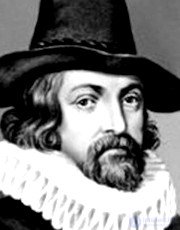
The subject of pedagogy is education as a real pedagogical process, purposefully organized in special social institutions (for example: in the family, in educational and cultural-educational institutions).
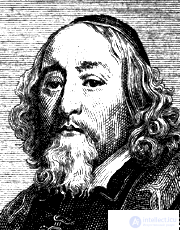
Based on the essence of the subject of pedagogy, V.A. Slastenin defines pedagogy as follows: pedagogy is a science that studies the essence, patterns, trends and prospects for the development of the pedagogical process as a factor and means of human development during all periods of his life.
This definition reveals the features of modern pedagogy, which studies not only children’s education, as it was at the beginning of the formation of pedagogical knowledge (pedagogy is literally translated from ancient Greek as “child support”, “childbirth”), but also adults.
Pedagogical (educational) process includes education and training. Therefore, pedagogy is often defined more briefly: as the science of the upbringing and training of a person .
Like any science, pedagogy performs certain functions, solves a number of urgent problems for humanity.
The main functions of pedagogical science include the following:
- General theoretical , consisting in a theoretical analysis of the laws of the pedagogical process (description and explanation of pedagogical phenomena and processes, identifying their causes, general patterns, the conditions of their existence, functioning and development);
- prognostic , consisting in a reasonable prediction of the development of pedagogical reality;
- practical (transformative, applied) , which ensures the improvement of pedagogical practice on the basis of fundamental knowledge.
The main tasks of pedagogy :
- identification of patterns of education and training, patterns that are manifested in the relationship of education and training in a holistic pedagogical process, as well as patterns of education management;
- the study and synthesis of educational practice, experience of teaching;
- development of new ways and means of training, education, management of educational structures;
- forecasting the development of education in the near and distant future;
- implementation of educational results in educational practice.
To the top
The relationship of educational science and practice
The interrelation of pedagogical science and pedagogical practice is realized in the process of their interaction and mutual enrichment (it is shown schematically in Figure 1.1).
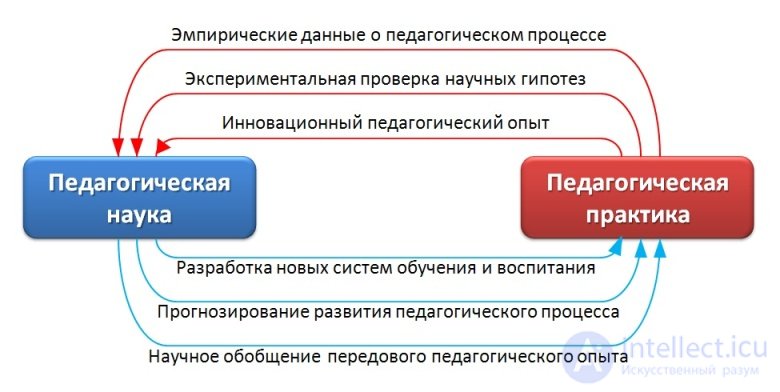
Fig. 1.1. The relationship of educational science and teaching practice
Let us explain the main aspects of the enrichment of pedagogical science at the expense of pedagogical practice .
1. Empirical data on the pedagogical process.
The most reliable data on the pedagogical process can be obtained only by an empirical (experimental, practical) method. Pedagogical science cannot develop without a constant flow of information from the practice of teachers: various statistics, information on the results of training and education, on the use of methods and means of organizing the pedagogical process, on attitudes to this or that pedagogical innovations, etc.
2. Experimental verification of scientific hypotheses.
Any scientific and pedagogical concepts remain only hypotheses until they are confirmed in practice. Experimental verification of scientific hypotheses is an important aspect of the relationship in question: practice affects the theory, “giving good” to new scientific and pedagogical developments or vice versa, revealing their fallacy or insufficient development.
3. Innovative pedagogical experience.
A significant part of scientific discoveries in pedagogy originates in teaching practice. It happens that practicing teachers, relying on experience and intuition, discover some regularity, invent new ways and means of organizing the educational process, begin to use them in their work, achieving high results. This innovative pedagogical experience is studied by pedagogical science, is subjected to a comprehensive analysis, and is used in further research.
The enrichment of pedagogical practice with pedagogical science consists in the following aspects.
1. Development of new training and education systems.
The pedagogical process is very controversial, it is influenced by a huge number of multidirectional factors. The presence of a unified system is necessary in order to streamline the pedagogical process, make it manageable and orient it in the direction of the main goals of training and education.
The system of training or education is an interrelated unity of goals, tasks of the pedagogical process, methods and means of its implementation, the main stages and pedagogical actions, the interaction of teachers with students, pupils. Its development requires the use of a large amount of scientific knowledge, as well as great efforts associated with the comprehension and search for new ideas, with the construction of a logical structure that unites all components of the pedagogical process.
Practical pedagogical activity focuses primarily on the achievement of private goals and the solution of operational tasks; it does not leave room for a systematic understanding of the whole process. Therefore, the development of new systems of training and education is so necessary to enrich the teaching practice.
2. Forecasting the development of the pedagogical process.
Science accumulates a huge amount of knowledge about the pedagogical process. This allows her not only to describe and relate known facts to each other, but also to discover something that is impossible to see, solving only particular problems of practical pedagogical activity. The possibility of scientific foresight in the development of the pedagogical process is precisely the aspect that allows us to suggest the best ways and means of pedagogical activity, prevent its possible mistakes, orient teachers in trends and prospects for the development of education in the country and the world.
3. Scientific synthesis of advanced pedagogical experience.
Advanced pedagogical experience, as a rule, is local, associated with the specialization of its creators. By creating unique authorial techniques, means, or even a whole technique, the teacher-practitioner can actively share the experience with his colleagues, but even in this case, the scope of dissemination of his experience will be small.
In addition, without scientific study it is difficult to understand what exactly is the decisive factor for the success of its methodological development. Maybe success is due to the individual and personal qualities of the teacher himself (his charm, enthusiasm, demandingness, performance, some unique ability, etc.) or the conditions existing in a single school (for example, special partnership relations with the parent community decades of work) and not the objective value of its development? In this case, when mass application, it will not be effective. Or maybe the author's development does not take into account such factors that could make it more effective?
A comprehensive study of advanced pedagogical experience provides answers to such questions and allows you to present the experience in a generalized form - in the form of clearly structured descriptions, manuals, recommendations that can be used by many teachers, including, possibly, teachers of other specialties.
To the top
Relationship of pedagogy with other sciences
Pedagogy cannot successfully develop in isolation from other human sciences.
Pedagogy influences the development of all sciences, contributing to the improvement of the educational process, through which ...
- the scientific knowledge accumulated by mankind is passed on to new generations;
- Specialists are prepared for research activities.
Perhaps the most obvious example of the relationship of pedagogy with all sciences is the methods of teaching a variety of academic disciplines. To plan the educational process for a particular discipline, you need to study its features, pedagogically adapt scientific knowledge (adapt it for best learning), develop a process of teacher interaction with students, build a system of pedagogical methods and tools.
Pedagogy is influenced by other sciences, borrowing from them knowledge of man and society, ways of scientific knowledge, adapting to his own needs scientific approaches and theories developed by other sciences.
Examples of the relationship of pedagogy with other sciences are presented in Fig. 1.2.
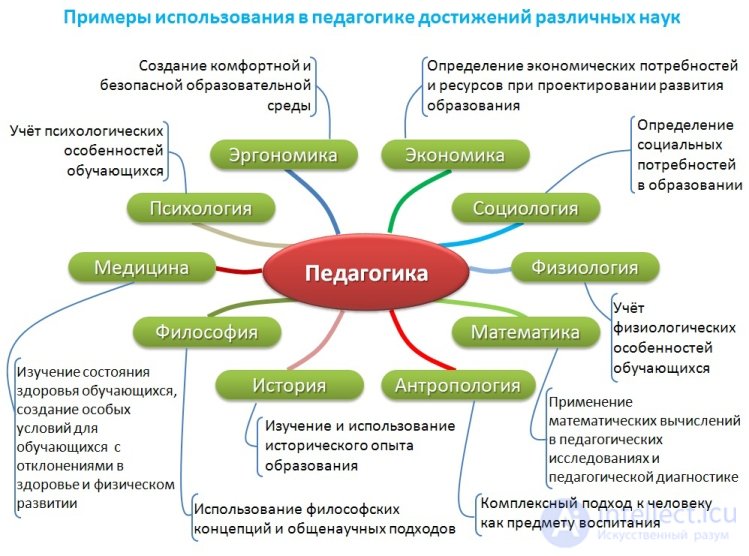
Fig. 1.2. Examples of use in the pedagogy of the achievements of various sciences
Due to the connection of pedagogy with psychology, it becomes possible to take into account the psychological characteristics of students. It can be said that psychological knowledge about the child serves as the basis for the pedagogical process. Without knowledge of mental processes, of the main stages of the formation of a personality, it is impossible to effectively manage the activity of a student, his harmonious development. While pedagogy did not have enough of its own scientific experience, it used psychology as a theory. And today psychological methods, tests, questionnaires are used in teaching.
These two sciences are closely intertwined with each other. Their common basic concepts, for example, such as personality, development, interaction, actively used by both sciences, speak about the interrelationship of pedagogics and psychology (of course, these terms in pedagogy and psychology are filled with slightly different meanings).
In the relationship of psychology and pedagogy there was a pedagogical psychology or psychology of education. Pedagogy and psychology are combined in the academic discipline "Pedagogy and Psychology", according to which a number of textbooks are published.
Pedagogy has a close relationship with philosophy , because pedagogical knowledge has long been part of the philosophical sciences. Currently, pedagogy uses philosophical concepts and general scientific approaches, borrowed in philosophy, the logic of constructing reasoning and formulating conclusions. Modern basic pedagogical theories are based on the postulates developed in philosophy: the pragmatic theory of upbringing and personal development - on the philosophy of pragmatism, existentialism - on the philosophy of existentialism, etc.
The role of philosophical knowledge in pedagogy is so great that a whole section of pedagogical science is devoted to the study of the relations of pedagogy with philosophy: the philosophy of education.
Of course, the closest and many-sided links of pedagogy are with the humanities and other human sciences (natural, social). So, pedagogy is associated with ethics and aesthetics .
The need to take into account in the pedagogical process the physiological characteristics of students of different ages (for example, in determining the teaching load or optimal hygienic conditions) requires the interaction of pedagogy with the physiology and hygiene of a person.
Creating special conditions for students with disabilities in health and physical development is possible only with the implementation of the connection of pedagogy with medicine .
The definition of economic and social needs and resources in the design of educational development has led to the connection of pedagogy with economics , demography and sociology .
Under the influence of anthropology (the science of the origin and evolution of man) a pedagogical anthropology was formed - a science that combines the knowledge of various sciences about man as a developing subject and object of education.
Along with the sciences of man and society, pedagogy establishes links with the exact sciences, using mathematical calculations to increase the effectiveness of pedagogical changes.
Connections with relatively new sciences: cybernetics , synergetics , ergonomics , etc. also contribute to the enrichment of pedagogy.
Structure of pedagogical science
In the development of any science can be divided into three stages.
At the first stage , the accumulation of knowledge and experience of their practical application takes place. Scientific knowledge is expanding, replenishing new established facts. However, the structure of science has not yet been determined, the methodology of scientific research has not been worked out, and key links between the established facts have not been identified. Therefore, scientific knowledge over time becomes cumbersome, inconvenient for practical use, reliable information in it coexist with erroneous conclusions.
The second stage is associated with the identification of patterns, the formulation of general laws, principles, with the development of scientific methodology. Knowledge of the general laws governing the phenomena and processes under study allows us to “curtail” scientific knowledge, makes science more accessible to understanding and greatly increases the possibilities of its applied application. For example, knowledge of one general law, which explains 1000 previously established facts, not only frees one from having to memorize all these facts, but also makes it possible to predict the 1001st fact, relying solely on scientific knowledge.
The third stage is characterized by the emergence of branches within science, their merging with adjacent branches of other sciences or the isolation of independent sciences from it. This occurs when a huge amount of scientific knowledge has been accumulated, and it shows that scientific knowledge no longer fits within the previously established framework of this science.
Modern pedagogy is in the third stage of its development. Today it actually represents the system of pedagogical sciences, united by a common subject of study.
The structure of pedagogical science is presented in fig. 1.3.
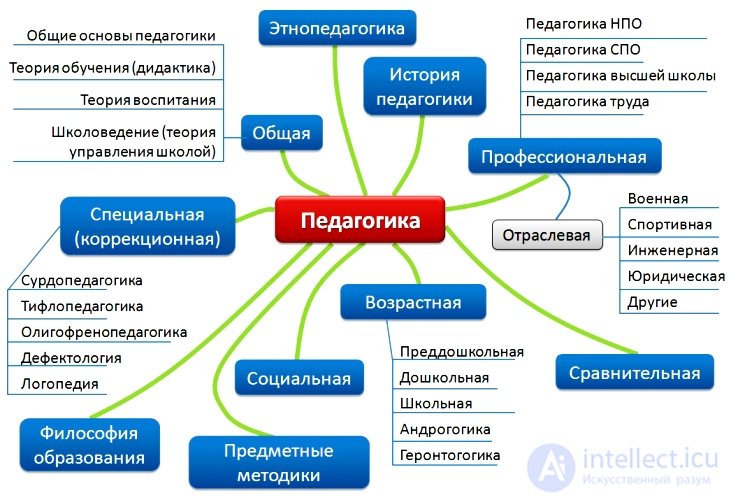
Fig. 1.3. Structure of pedagogical science
Let us comment on the structure of pedagogical science depicted in the diagram.
General pedagogy explores the basic laws of the pedagogical process and is the basis for the development of all pedagogical sciences and branches of pedagogical knowledge. In the structure of general pedagogy stand out ...
- общие основы педагогики (к ним относятся общие закономерности педагогического процесса, базовые педагогические теории, методология педагогической деятельности и педагогического исследования);
- дидактика (теория обучения) ;
- теория воспитания ;
- школоведение (теория управления школой, организации деятельности педагогического коллектива).
История педагогики изучает развитие педагогических идей, теорий и систем образования.
Философия образования занимается изучением роли философских концепций, необходимых для понимания сущности педагогического процесса, определяет идеологию образования, анализирует основные подходы к определению целей обучения и воспитания и путей их реализации.
Возрастная педагогика исследует особенности развития человека различного возраста. В этом разделе выделяются…
- преддошкольная педагогика ;
- дошкольная педагогика ;
- школьная педагогика ;
- андрогогика (рассматривает вопросы обучения взрослых);
- геронтогогика – педагогика старости (в пожилом возрасте также приходится приобретать новые знания и умения – и не только те, которые связаны с поддержанием собственной жизнеспособности; например, в последние годы пожилые люди стали активно осваивать пользование компьютером и интернетом).
Профессиональная педагогика исследует проблемы профессионального образования. В свою очередь, она подразделяется по двум основаниям.
1. По уровню, ступени профессионального образования:
- педагогика начального профессионального образования (НПО);
- педагогика среднего профессионального образования (СПО);
- педагогика высшей школы или педагогика высшего профессионального образования (ВПО);
- педагогика труда , изучающая особенности образования работающих людей (повышение квалификации, переподготовка, обучение в трудовом коллективе).
2. По отрасли, для которой ведётся подготовка специалистов. Совокупность отраслевых подразделов часто рассматривают как самостоятельный раздел: отраслевую педагогику . Отраслевая педагогика включает в себя инженерную, спортивную, юридическую, военную и другие.
Социальная педагогика разрабатывает проблемы влияния общества на формирование и развитие личности. К ней относятся следующие отрасли:
- семейная педагогика , занимающаяся вопросами воспитания в семье;
- педагогика трудовых коллективов ;
- пенитенциарная (исправительная) педагогика , в круг проблем которой входят проблемы воспитания и перевоспитания лиц, нарушивших закон, содержащихся в пенитенциарных (исправительных) учреждениях.
Коррекционная (специальная) педагогика изучает обучение и воспитание детей с физическими и психофизиологическими отклонениями в развитии. В её структуре традиционно выделяются…
- дефектология (изучает вопросы обучения и воспитания детей с задержками в психическом развитии);
- логопедия или логопедагогика (исправление дефектов речи);
- сурдопедагогика (образование глухих и слабослышащих);
- тифлопедагогика (образование слабовидящих и незрячих детей);
- олигофренопедагогика (образование умственно отсталых).
Этнопедагогика исследует опыт народного воспитания.
Сравнительная педагогика изучает образования в различных странах мира, сравнивает его и выделяет его содержательные и организационные особенности.
Частные (предметные) методики занимаются вопросами преподавания отдельных учебных дисциплин.
Итак, современная педагогика имеет разветвлённую структуру, обусловленную большим объёмом накопленных знаний и разнообразием связей с другими науками, с различными потребностями человека и общества.
To the top
Категориально-понятийный аппарат современной педагогики
В любой науке среди множества понятий можно выделить наиболее существенные – те, которые одинаково определяются в любой её отрасли, без которых невозможно обойтись, описывая её предмет, и которые соответствуют её базовым процессам и явлениям. Они называются категориями и составляют категориально-понятийный аппарат данной науки.
Категории педагогики – это понятия, определяющие главные явления и процессы, изучаемые педагогической наукой.
Эти категории очень сложны, а потому и само их толкование в педагогической науке неоднозначно.
Перечень категорий педагогики также не является общепринятым, поскольку…
- все научно-педагогические понятия, так или иначе, связаны между собой, вследствие чего не общепринята та граница, которая отделила бы категориальные понятия от всех прочих;
- многие базовые педагогические понятия активно используются и другими науками о человеке и обществе, вопрос отнесения их к «чисто педагогическим» не имеет общепризнанного ответа.
Среди учёных не вызывает сомнения необходимость отнесение к категориям педагогики следующих понятий: обучение , воспитание , образование .
Часто к ним добавляют формирование личности .
Наряду с формированием, многие относят к категориям педагогики развитие и социализацию личности. Наконец, среди категорий педагогики можно встретить базовые понятия, присущие только педагогической науке: педагогический процесс , педагогическая система , педагогическая деятельность .
Определим сущность этих понятий.
Воспитание – 1) воздействие общества на личность; 2) социальный процесс передачи исторического и культурного опыта от поколения к поколению; 3) процесс специально организованного взаимодействия педагогов и воспитанников по реализации воспитательных целей и задач, отражающих основные требования общества.
Training is a joint purposeful activity of a teacher and students, during which students acquire scientific knowledge and practical experience of their use.
Education - 1) a process that combines the education and training of a person; 2) the result of this process; 3) a complex system of interactions of people and material resources, providing training, education and personal development; 4) the value created by mankind for the development of man and society.
Formation of personality - giving shape, a certain completeness, harmony of all components of a person’s personality.
Развитие в широком смысле – процесс совершенствования имеющихся качеств и приобретения новых свойств, изменение качеств от простого к сложному, от низшего к высшему. Применительно к человеку развитие может означать:
1) всестороннее развитие человека как индивида;
2) физическое развитие, формирование физически здорового и жизнеспособного человека, развитие его силы, ловкости, выносливости и т.д.;
3) развитие психических процессов (восприятия, памяти, мышления, воображения и т.д.);
4) развитие личности как сложной, обладающей индивидуальностью системы внутреннего мира человека, приобретение новых личностных качеств.
Социализация личности – процесс взаимодействия личности с социальной средой, в результате которого человек усваивает нормы и правила поведения, культурные ценности, принятые в обществе, к которому он принадлежит. Иначе говоря, социализация – это процесс вхождения личности в общество, «встраивания» человека в систему общественных отношений. И здесь тоже есть несколько вариантов трактовки понятия, ведь в обществе человеку надо уметь адаптироваться к социальным условиям, но важно и уметь использовать ресурсы социальных отношений для реализации своих потребностей, своей уникальности.
Педагогический процесс – специально организованное взаимодействие педагогов и воспитанников с целью образования и развития личности воспитанников.
Педагогическая система – социально обусловленная целостность участников педагогического процесса, взаимодействующих друг с другом, с окружающей средой и её духовными и материальными ценностями, направленная на формирование и развитие личности.
Педагогическая деятельность – это особая сфера деятельности, направленная на передачу новому поколению человечества опыта, накопленного предыдущими поколениями. Педагогическая деятельность представляет собой управление деятельностью воспитанника и процессом взаимодействия с ним с целью его воспитания и обучения, развития его как личности.
Определить категории педагогики – это лишь часть их понимания их сущности. В категориально-понятийном аппарате все они взаимосвязаны, образуя целостную систему (именно «аппарат», а не разрозненные детали).
Характер связей между категориями разнообразен. При рассмотрении разных вопросов педагогики они могут быть связаны вертикально (иерархически) – например, одна категория является более общей по отношению к другой, представляющей частный случай первой – или горизонтально (когда категории равны по своей значимости).
Например, в педагогической науке широко распространено и обстоятельно обосновано мнение, что образование как процесс служит формированию личности. Таким образом, формирование личности является более широким понятием, а образование, обучение и воспитание – его частными случаями, способами формирования личности человека.
Вот еще несколько примеров связей в структуре категориально-понятийного аппарата педагогики.
Развитие личности тесно связано с её социализацией, поскольку социально значимые качества личность приобретает и совершенствует по мере своего развития. В то же время успешная социализация личности является одной из важнейших задач педагогического процесса. В свою очередь, педагогический процесс может быть учебным, воспитательным или объединять в себе обучение и воспитание, приобретая сущностные характеристики образования как процесса. В учебном процессе реализуются образовательная, воспитательная и развивающая функции, тем самым связывая между собой образование, воспитание и развитие и иерархически подчиняя их обучению.
Приведённые примеры – лишь часть разнообразных связей, формирующих структуру категориально-понятийного аппарата. Можно проследить связи между любыми категориями и убедиться в том, что категориально-понятийный аппарат педагогики – это не просто совокупность категорий, а их целостное единство, система взаимодействующих между собой компонентов.
Один из подходов к определению структуры категориально-понятийного аппарата педагогики (Л.М. Кадцын) показан на рис. 1.4 [1] .
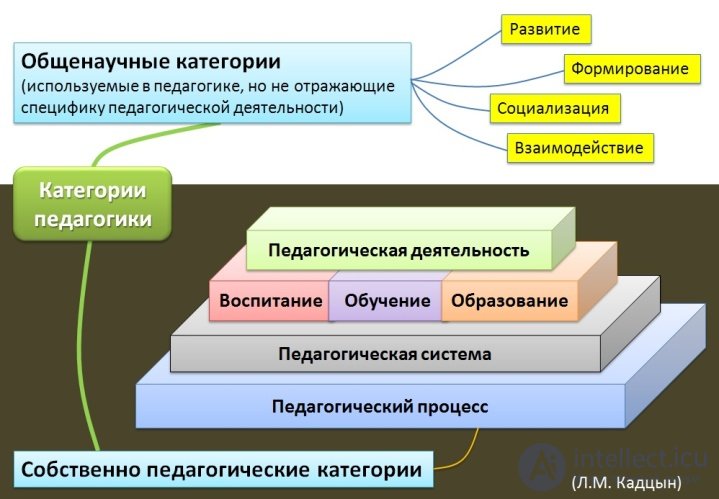
Fig. 1.4. Категориально-понятийный аппарат педагогики
To the top
Контрольные вопросы и задания по теме " Педагогика в системе гуманитарных знаний и наук о человеке "
1. Что является объектом и предметом современной педагогики?
2. Каковы основные функции педагогической науки?
3. Какие задачи решает педагогическая наука?
4. Как проявляется взаимосвязь педагогической науки и практики?
5. Приведите примеры взаимодействия педагогической науки и педагогической практики.
6. Обоснуйте связь педагогики с науками о человеке.
7. Приведите примеры взаимодействия педагогики с другими науками.
8. Приведите примеры заимствования педагогикой достижений других наук.
9. Почему педагогика имеет сложную, разветвлённую структуру?
10. Что входит в категориально-понятийный аппарат современной педагогики?
11. Приведите примеры категорий педагогики и связей между ними.
To the top
[1] Схематичное изображение выполнено по материалам источника: Кадцын Л.М. Педагогическая деятельность и педагогический процесс: учеб. allowance. - Екатеринбург: ГОУ ВПО «Рос.гос. проф.-пед. ун-т», 2008. - 185 с.
Comments
To leave a comment
Pedagogy and didactics
Terms: Pedagogy and didactics